The first year in a new career can be frustrating, hectic and terrible for your sleep. It can also be the most rewarding 12 months of your life. Dan Stewart caught up with four young starters who are juggling first projects, training and even a social life
The site manager
David Grazer, 25, Costain
An undergraduate degree in politics is an unorthodox way to go into site management. But it wasn’t until David Grazer spent his year out after university housebuilding in Canada that he realised construction was for him: “It’s such an open, flexible job. I didn’t want to be stuck in an office. I like being outside.”
Grazer joined the graduate trainee programme at Costain in August. His first placement was a school project in Stockley, Cheshire, and he was sent straight to site on his first day. ““It was a real eye-opener,” he says. “There were lots of works going on I’d never seen before. It really hit home how much I had to learn.”
Although he had spent time on site as a builder, Grazer knew very little about day-to-day site management. So did his co-workers on site try to take advantage of his rookie status? “No, I wasn’t asked to fetch any glass hammers! I’d worked on sites before, so I knew the banter. It was great craic.”
It all happened very quickly. When you realise people are relying on you, it really builds your confidence up
David Grazer
His next placement, four months later, was a PFI school project at Ealing in west London, where he began to settle into the job. “It was much more hands on. I started to learn about contracts, health and safety and waste management. It all happened very quickly. When you realise people are relying on you, it really builds your confidence up.”
As a “non-cognate” trainee, he has to juggle his work with studies for a graduate diploma from the Chartered Institute of Building - which is tricky because his day job means Grazer has to be on site for up to 10 hours a day. “It’s a hard slog, this project, but at the moment I just want to finish my diploma. Then I can start thinking about the future.”
The engineer
Fiona Boyce, 25, Faber Maunsell
Liverpool-born Fiona Boyce studied mechanical engineering at Birmingham University, but ambition led her into a career in building services. “I’d like to be a director, and I felt the career ladder was stronger.”
It’s encouraging that when I take things to the architect they believe what I’m saying!
Fiona Boyce
Since starting on Faber Maunsell’s graduate scheme, she’s found the differences between university and the real world something of a shock. “My degree taught the right things theoretically, but practically things are completely different. I understood the calculations, but not how to apply them.”
Her first day wasn’t as terrifying as she expected, largely thanks to the firm’s buddy system for new graduates. “I was looked after by an engineer three years senior to me. She was really friendly and took me out to lunch to tell me all about the job and what the company was like. If you haven’t got a clue where to begin on a project, there’s always someone who’ll help. The first time you might think, ‘Oh they’ll think I’m so stupid’, but people expect it.”
Her first project was on an office in Moorgate in London, but Boyce says most of her time was spent behind a desk in Faber Maunsell’s head office. “It was a little frustrating,” she admits, “but when I did get to visit the site it was useful to piece together everything in real life that I’d been working on on paper.”
Her next assignment is on a mechanical services project at Canary Wharf, where she’s working on her own a lot more. “Most of my work is very hands-on, working on CAD drawings alongside architects and cost managers, attending meetings. I became aware that I could do lots of tasks on my own and it gave me a lot of confidence to put the things I’d learned into practice. It’s encouraging that when I take things to the architect they believe what I’m saying!”
The quantity surveyor
As soon as I got in, a drawing was thrust in front of me, and I was told to measure it. I was so nervous, but there were lots of us who started from scratch
Laura Simpson
Laura Simpson, 26, Gleeds
Construction runs in Laura Simpson’s family - her father is a project manager in France - so a career in building was always an option. However, it took her a while to realise it. “I studied Italian and international relations at university,” she says, “then went into finance in Mayfair. But I think deep down I always wanted to be in construction.”
Simpson was accepted onto the graduate scheme at quanity surveyor Gleeds, and found she was not the only person who hadn’t studied surveying at university. “As soon as I got in, a drawing was thrust in front of me, and I was told to measure it. I was so nervous, because I didn’t know what was involved. I thought I would be the only non-cognate, but there were lots of us who started from scratch.”
Simpson has nearly completed her MSc at South Bank University. “We finish in May, thank God,” she says. “We spend one day at university, four days at work and then trying desperately to fit our homework around our social lives at the weekends.”
She’s also been taken on by Gleeds’ international division, which gives her a chance to use her language skills. She’s working on the new Nato headquarters in Brussels, cost-planning the offices and external works. “You have to make decisions and deal with people on an international basis. It’s a real learning curve.”
Before, I was always studying, so I was always working, but now the evenings are free. It’s very strange!
Sandra Knoebl
The architect
Sandra Knoebl, 29, SMC Alsop
Twenty-nine might seem quite old to be embarking on your first year in a job, but not when you’ve studied for seven-and-a-half years, like Sandra Knoebl has. In Austria, where Knoebl grew up, there are no student loans. “If your parents can’t support you, you have to try to work at the same time, so the degree takes longer,” she explains. “It’s quite handy actually, because when you become an architect you have to be able to time manage, so it’s quite useful to practice with a chaotic educational system.”
Knoebl studied under the maverick architect Will Alsop when she was at technical college in Vienna, and he invited her to join his practice while she was completing her diploma. She moved to London and started at SMC Alsop last summer.
She was thrown in at the deep end straight off. The first project she worked on was a 27-floor residential tower in Salford, Manchester, doing cost-planning and pre-design work. She also had to meet the client, one of the biggest differences she’s experienced from university. “As a student, you are essentially both architect and client. You decide what you’re going to do. But when you work for an architect, it’s about working to someone else’s vision. You have to try to understand why they have thought like they have.”
The scale of the professional workload was also a shock to Knoebl, but a pleasant one: “Before, I was always studying, so I was always working, but now the evenings are free. It’s very strange!”
Since that first tower, she’s worked on a variety of projects and competitions, from a power plant in New York to skyscrapers in Hackney. She does feasibility studies, and proposals for projects that are starting up. “I really enjoy the flexibility in terms of different projects and clients. You work three or four weeks on a project with your team and then you’re onto the next one so there’s no time to get attached.”

























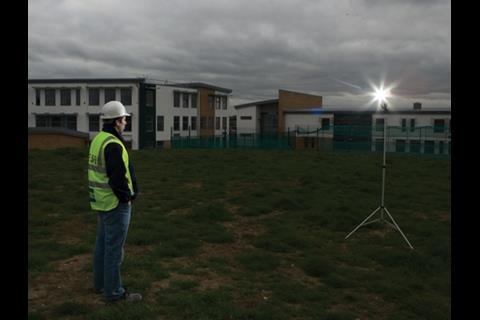
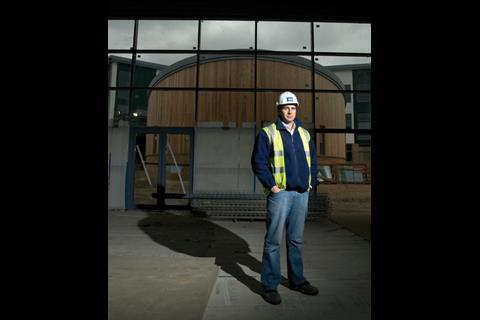
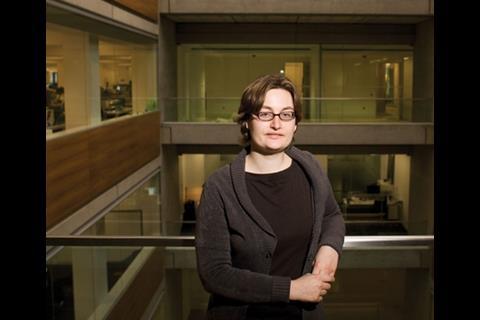
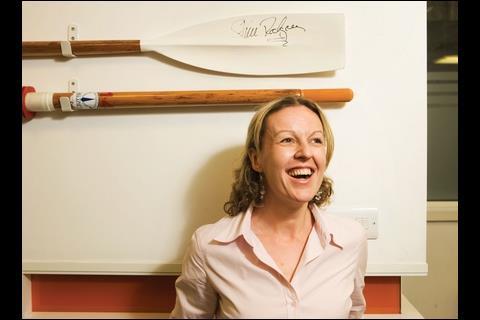
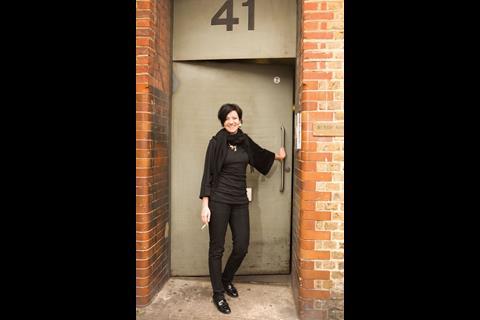














No comments yet